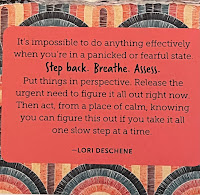Improvising With the Buddha - Leading with your chakra

In a previous Improvising With the Buddha post, I wrote about shoshin, “beginner’s mind.” In this post I’m writing about energy work. If you’ve studied or read about improvisation, you know the rule about making strong choices. One of the strong choices we make in scene work is choosing an emotion. In class I’ve used the Emotion or Feeling Wheel to help students understand the depth and range of emotions. In the center of wheel are six to ten core emotions depending on which wheel you use. The most common has seven core emotions. Those emotions fan out to four to eight secondary emotions that then fan out to four or more tertiary emotions. Through the wheel you can see that a feeling of numbness stems from a feeling of distance with comes from the primary emotion of anger. In a scene knowing where our emotions come from helps with sub-text and in real life it helps us better understand our motivations and relationships. In scene work just knowing where an emotion comes from may...





